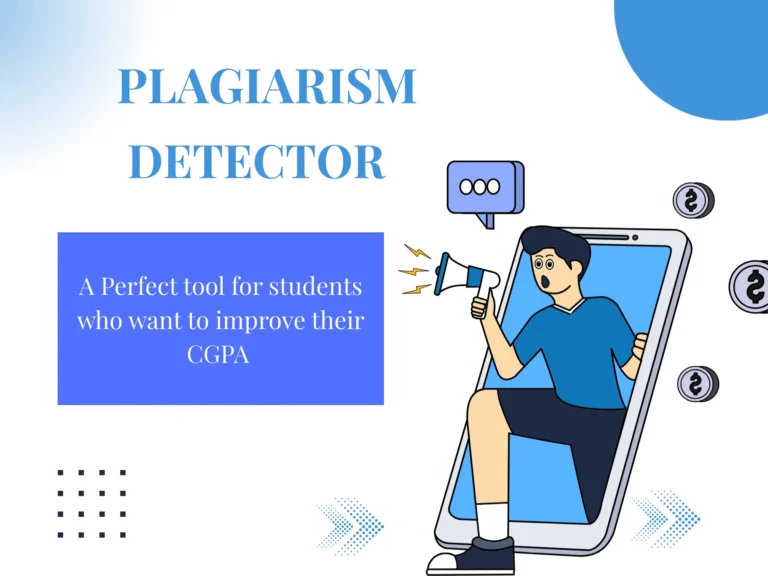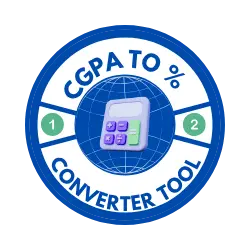A Smart Hack to Save Yourself from Plagiarism – Improves your CGPA
So last semester, my roommate Sarah spent three weeks on her English final paper. She researched everything, cited every source, and stayed up nights perfecting it. Know what happened? She got a zero. She forgot quote marks around ONE sentence, and the professor nailed her for plagiarism. Sarah cried for hours. Her GPA dropped from 3.8 to 3.4 in one assignment.
That’s when I realized something scary: half the students getting hammered for “cheating” aren’t actually cheating. They’re making tiny mistakes that professors treat like major crimes.

Your GPA isn’t just some number. Scholarship committees judge you on it. Graduate schools reject you without it. Employers toss your resume if it’s too low. You can fall into trouble with your small laziness. But Sarah’s story has a happy ending. She learned about plagiarism checkers. Now I’m sharing what she taught me.
College Plagiarism: What Students Need to Know
High school taught us that plagiarism meant copying Wikipedia articles. College professors care about way smaller stuff:
- Taking someone’s idea and just switching a few words around. Forgetting to put quotes around something you copied exactly. Without permission, using the same paper in another subject class. You rephrase the sentence without changing its pattern.
- Professor Martinez in my psychology class failed three students last month for this stuff. They have no intentions to cheat, but they get to know the trick.
- My friend Alex got in trouble for turning in a paper where he changed “The study shows” to “Research demonstrates,” but kept everything else the same. The software caught it instantly.
Universities don’t care about your intentions anymore. They see matching text, they assume you cheated. End of story.
What These Checking Tools Do (And Why They’re Lifesavers)
- You can upload the picture of your essay to the site. Within three minutes, it scans your paper against literally millions of sources – websites, books, journals, and other student papers from schools worldwide.
- Then it shows you a report highlighting every sentence that matches something else. Red means exact copying. Yellow means close paraphrasing. Green usually means you’re safe.
- The really good ones show you exactly where the original text came from, so you can fix citation problems before turning anything in.
I started using one after watching Sarah’s disaster. The first paper I checked came back with 23% matched. Freaked me out! But most of it was just common phrases and stuff I could easily fix.
Free vs Paid Plagiarism Checkers
| Feature | Free Tools 🆓 | Paid Tools 💰 |
| Database Size | Limited (mostly public websites) | Huge (journals, books, student papers, premium sources) |
| Accuracy | Low to medium | High (detects exact + paraphrased content) |
| AI Writing Detection | Rarely included | Often included in premium checkers |
| Speed | Fast but shallow scans | May take longer, but far more thorough |
| Report Clarity | Basic, often vague | Detailed with highlighted text + sources |
| Cost | Totally free | Charges $10–$30 per month |
| Good for | Personal usage | For educational purposes |
| Examples | Small online checkers, free trial tools | Turnitin, Grammarly Premium, Quetext Pro |
Why Every Smart Student Uses These Now
i wondered how to avoid plagiarism in college. Another expense, another hassle. But think about what you’re protecting:
- You find problems before your professor does. My economics teacher runs everything through Turnitin automatically. Students who check first never get surprised by bad news after grading.
- Your writing actually gets better. After seeing what triggers the software a few times, you naturally start paraphrasing differently. You get better at explaining ideas in your own voice instead of copying the author’s style.
- You stop worrying after submitting assignments. Remember that awful feeling when you’d turn something in, then immediately panic about citations? That anxiety disappears completely.
- You avoid academic probation hell. One of my friends was caught in plagiarism. Lost his scholarship, had to explain it on every job application, and delayed graduation. All preventable.
Last week, my study group all checked our sociology papers. Two people found citation errors that would’ve definitely gotten flagged. They fixed them in ten minutes instead of losing letter grades.
Picking One That Actually Catches Problems
Free checkers are usually trash. They only scan basic websites and miss academic sources completely. For something this important, spend the money. Plagiarism vs paraphrasing, both are different.
What separates good ones from useless ones:
- The size of their database. Crappy tools only check public websites. Good ones scan academic journals, books, and student papers from thousands of schools. Way more thorough.
- How accurate they are. Some give results super fast, but miss obvious copying. Others take longer but catch subtle stuff that would definitely get you in trouble.
- Can you actually understand the results? If the report is confusing or doesn’t show you how to fix problems, it’s worthless.
My dorm uses Grammarly Premium because it catches plagiarism AND fixes grammar mistakes. Costs like twenty bucks a month but saves way more than that in potential grade losses.
Turnitin is the gold standard if your school gives you access. Quetext works great for tight budgets. Avoid anything completely free; there’s always a catch.
Habits to Avoid Plagiarism in College
You can’t check every single assignment, so build writing habits that naturally avoid problems:
- When you’re researching, take notes in YOUR words from the beginning. Don’t copy chunks, planning to “paraphrase later”. You’ll forget and accidentally leave copied text.
- If something’s worth quoting exactly, put quote marks around it immediately while you’re writing. Don’t wait until you’re editing because you’ll lose track of what needs quotes.
- You can track all your sources. Trying to remember where you found information after finishing your paper is how citation mistakes happen.
- Learn your school’s citation style perfectly. Whether it’s MLA, APA, or whatever, know every rule. Most plagiarism problems are really citation problems in disguise.
- When you’re not sure if something needs a citation, cite it anyway. Professors never punish you for more knowledge, but they’ll destroy you for your laziness.
Plagiarism vs Paraphrasing
| Feature | Plagiarism ❌ | Paraphrasing ✅ |
| Definition | Copying text/ideas without credit | Rewriting ideas in your own words with citation |
| Academic Risk | High (penalties, grade loss) | Safe if cited properly |
| Example | Copy-pasting from an article | Summarizing in your own style |
What’s Coming (Spoiler: It’s Getting Stricter)
- Universities are more concerned about AI writing now, too. New checkers can detect ChatGPT-generated text alongside regular copying. Some tools give you warnings while you’re typing, before you even finish your first draft.
- Google Docs and Microsoft Word are starting to build plagiarism checking directly into their software. Soon it’ll be as automatic as spell-check.
- Students who start using these tools now will have huge advantages as checking becomes standard everywhere. A plagiarism checker for students is a blessing as well as a disaster.
Don’t Gamble Your Future on This
Sarah’s story could happen to anyone. Brilliant students fail over technicalities every day. Students who worked harder than you, studied more than you, and cared more about their grades than you. Then, gone because of missing quotation marks or wrong citation formats.
- Your GPA took years to build. Thousands in tuition. Countless hours studying. Why risk all that over something this preventable?
- Check your papers. Fix the problems. Submit knowing you’re completely safe.
- It costs less than a pizza and takes five minutes. Compare that to what you lose if you get caught. Failed grades, academic probation, scholarship losses, and graduate school rejections.
- I’ve watched too many friends learn this lesson the hard way. Don’t be next.
- Start checking everything now, before it’s too late. Your future depends on that GPA – protect it.
